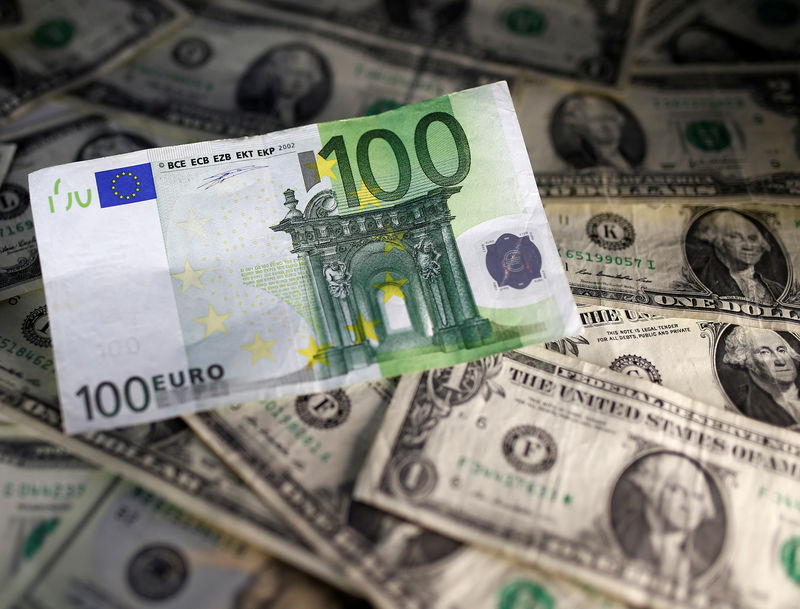Investing.com - The euro was lower against the dollar on Monday as concerns over political uncertainty in the euro area weighed while the dollar pushed higher despite Friday’s soft U.S. inflation data.
EUR/USD was down 0.23% to 1.1794 by 03:26 AM ET (07:26 AM GMT), the lowest level in almost a week.
The euro remained on the back foot following gains by the resurgent far right in Sunday’s Austrian election and a setback for German chancellor Angela Merkel after suffering a defeat at the hands of the Social Democrats in a vote in the northern state of Lower Saxony at the weekend.
Concerns over Catalonia’s possible move towards independence also remained to the forefront as the region once again failed to clarify whether it is officially declaring independence after a Monday deadline set by the central government passed.
Catalan leader Carles Puigdemont reiterated an offer to meet Spanish Prime Minister Mariano Rajoy as soon as possible to discuss the situation.
The euro’s losses were held in check amid expectations that the European Central Bank will outline plans later this month to start tapering its stimulus program.
The dollar was a touch lower against the yen, with USD/JPY last at 111.66, not far from Friday’s lows of 111.67, which was the weakest level since September 26.
The greenback slid on Friday after softer than expected U.S. inflation data clouded the outlook for another rate increase by the Federal Reserve in the coming months.
Although inflation rose at the fastest rate in eight months, it was mainly driven by soaring gasoline prices after hurricanes hit the southern U.S. Underlying inflation remained subdued.
The data tempered expectations that the Fed will hike interest rates in December for a third time this year.
Expectations that U.S. rates will rise help support the dollar by making U.S. assets more attractive to yield-seeking investors.
Fed Chair Janet Yellen said Sunday that policymakers will be paying close attention to inflation data in the months ahead. She also said that the economy remains strong and the strength of the labor market calls for continued gradual increases in interest rates despite soft inflation.
The U.S. dollar index, which measures the greenback’s strength against a trade-weighted basket of six major currencies, was up 0.14% at 93.06, boosted by the weaker euro.
Sterling pushed higher, with GBP/USD rising 0.15% to 1.3308 amid hopes that Britain could be offered a two-year Brexit transition deal.
